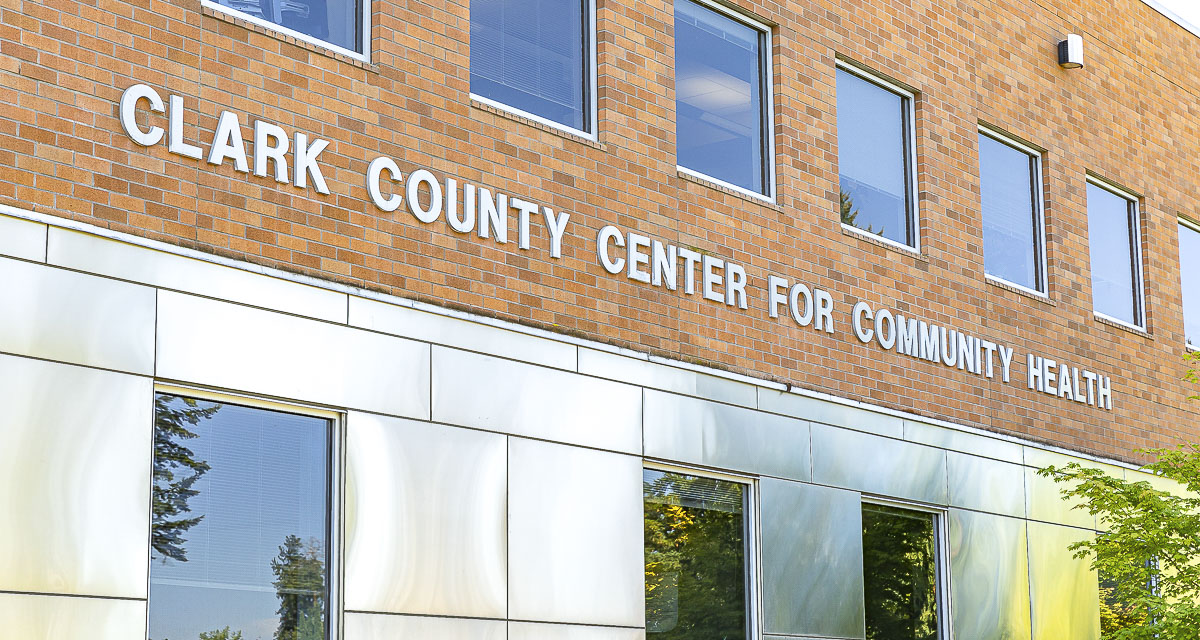
Through October, 406 Clark County residents, mostly children, have been diagnosed with whooping cough – the highest number of cases among all counties in Washington
VANCOUVER – Whooping cough cases continue to soar in Clark County, with 168 cases reported in the first two months of the new school year. Through October, 406 Clark County residents, mostly children, have been diagnosed with whooping cough – the highest number of cases among all counties in Washington.
And Clark County Public Health is now also seeing a rise in chickenpox cases among children, with three schools experiencing outbreaks since late September. So far this year, 50 cases of chickenpox have been reported, with 23 of those cases tied to the school outbreaks.
Most of the whooping cough and chickenpox cases are among unvaccinated children.
“We have vaccines that are safe and can prevent these diseases,” said Dr. Alan Melnick, Clark County health officer and Public Health director. “The best thing parents can do to keep their children healthy and prevent them from missing time in the classroom is to ensure they are up to date on their vaccinations.”
Children who get whooping cough or chickenpox cannot return to school until they are no longer contagious, which means students can miss a week or more of school. When a school has a chickenpox outbreak, students without evidence of immunity – either from vaccination or previous infection – can be excluded for 21 days from the last date they were exposed.
Not only will children who get sick miss time at school, they can also bring the illness home to their younger siblings and others who are at higher risk for complications from these diseases. Infants are at the greatest risk for severe illness and hospitalization from whooping cough. Infants, pregnant people, adolescents, adults and people with weakened immune systems are at higher risk for complications from chickenpox.
Whooping cough
Whooping cough – or pertussis – is a serious respiratory illness that spreads easily from person to person when an infected person breathes, coughs or sneezes. Early symptoms of whooping cough are similar to those of a common cold: runny or stuffy nose, a mild cough, and a low-grade fever. However, one to two weeks after symptoms begin, people can develop violent coughing fits that leave them gasping for air afterward. Babies with whooping cough may not cough but instead have life-threatening pauses in breathing, gagging or gasping
People with whooping cough are contagious as soon as their first cold-like symptoms begin, so they can spread the illness to others before realizing they are infected.
People who develop symptoms of whooping cough should contact their health care provider for testing and treatment. Whooping cough can be treated with antibiotics, which can help reduce the severity of illness and prevent spreading the illness to others. People who live with someone who has whooping cough can also get antibiotics to help prevent infection.
Whooping cough vaccination is recommended for all babies, children, preteens and pregnant women. And adults who have never received a Tdap (tetanus, diphtheria and pertussis) vaccine should get one.
Babies need three doses of DTaP (diphtheria, tetanus and pertussis) vaccine, given at 2, 4 and 6 months old, to build protection. They then receive two additional doses as young children – one at 15-18 months old, the second at 4-6 years – to maintain that protection.
Preteens should get one dose of Tdap when they’re 11-12 years old to boost their protection. And pregnant women should get a Tdap booster during the third trimester of every pregnancy. This helps to protect the baby from whooping cough in the first few months of life.
Chickenpox
Chickenpox is a highly contagious disease caused by a virus called varicella-zoster. Chickenpox is mainly spread through close contact with someone who has chickenpox.
Early symptoms of chickenpox include fever, tiredness, loss of appetite and headache, followed by a rash that turns into itchy, fluid-filled blisters. People who have chickenpox are contagious one to two days before the rash begins and remain contagious until all blisters have scabbed.
Two doses of the chickenpox vaccine are recommended for children: one dose at 12-15 months old and a second dose at 4-6 years old. Two doses of the vaccine are 90% effective at preventing chickenpox, and the chickenpox vaccine prevents almost all cases of severe illness.
Information provided by Clark Co. WA Communications.
Also read:
- House Democrats advance $18B in tax hike proposals as session winds downHouse Democrats in Washington advanced several tax hike proposals as the legislative session nears its end, aiming to address a major budget shortfall.
- Republican budget leaders see showdown ahead as Senate Democrats approve trio of major tax increasesSenate Democrats in Washington have approved major tax increases, prompting Republican budget leaders to warn of a growing showdown ahead.
- Representatives from the 18th and 20th Legislative Districts to hold joint town hall on May 3Lawmakers from the 18th and 20th Legislative Districts will host a joint town hall on May 3 at Battle Ground City Hall to review the legislative session and hear from residents.
- Expect delays on northbound I-5 near Ridgefield through May 9Northbound I-5 travelers near Ridgefield should expect delays through May 9 as crews work on improvements at the Exit 14 off-ramp to support future development.
- Brandon Erickson announces candidacy for Clark County Charter Review CommissionBrandon Erickson has announced his candidacy for the Clark County Charter Review Commission, seeking Position 1 in District 2.
- Clark County Sheriff’s Office investigating a reported burglary that led to apparent suicideThe Clark County Sheriff’s Office is investigating a reported burglary in Vancouver that ended with the apparent suicide of Charles Gardiner, interim chief of the Cowlitz Tribal Public Safety Department.
- POLL: Why did voters reject all three tax proposals in the April 22 special election?Clark County voters rejected all three tax measures on the April 22 special election ballot, prompting questions about trust, affordability, and communication.











